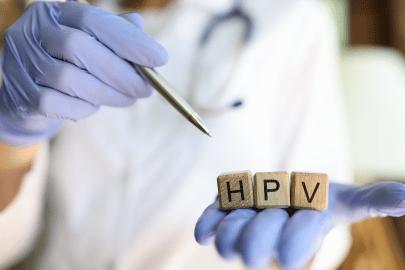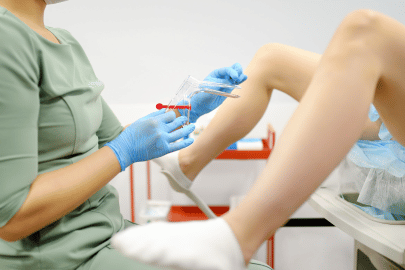Pap smears and HPV testing are essential tools for maintaining cervical health and preventing cervical cancer. Regular screenings can detect early changes in cervical cells and identify high-risk human papillomavirus (HPV) infections, enabling timely intervention. This article explains the importance of these tests, how they work, and what to expect during a screening.
What Is a Pap Smear?
A Pap smear, also called a Pap test, is a screening procedure that checks for abnormal changes in the cells of the cervix. Early detection of these changes can prevent cervical cancer or catch it in its most treatable stages.
Who Should Get a Pap Smear?

- Women aged 21 to 65 should have regular Pap smears.
- Frequency depends on age and health history:
- Every 3 years for women aged 21–29.
- Every 5 years for women aged 30–65 when combined with HPV testing.
What Is HPV Testing?

HPV testing screens for the presence of high-risk types of the human papillomavirus that can cause cervical cancer. While most HPV infections clear on their own, some persist and lead to cellular changes over time.
Who Should Get an HPV Test?
- Recommended for women aged 30 and older.
- Often performed alongside a Pap smear in a co-testing approach.
Why Are These Tests Important?

1. Early Detection Saves Lives
- Pap smears can detect precancerous cells before they develop into cervical cancer.
- HPV testing identifies infections linked to cervical cancer risk.
2. Cervical Cancer Prevention
• Early treatment of abnormal cells can prevent progression to cancer.
3. Peace of Mind
• Regular screening offers reassurance about your cervical health.
What to Expect During a Pap Smear or HPV Test
The Procedure

- You’ll lie on an exam table with your feet in stirrups.
- A healthcare provider inserts a speculum to gently open the vaginal walls.
- A small brush or spatula is used to collect cells from the cervix.
- The sample is sent to a lab for analysis.
Is It Painful?
• Most women experience only mild discomfort. Communicate with your provider if you feel pain or anxiety.
When to Seek Testing
Consider scheduling a Pap smear or HPV test if:
- You are due for your routine screening based on age and health history.
- You experience unusual symptoms like bleeding between periods, pain during intercourse, or abnormal vaginal discharge.
- Your healthcare provider recommends testing as part of your cervical cancer prevention plan.
Risk Factors for Cervical Cancer
Certain factors may increase your risk of abnormal Pap or HPV results:
- Early sexual activity or multiple partners.
- Persistent HPV infection.
- Smoking, which weakens the immune system.
- A history of sexually transmitted infections (STIs).
Supporting Your Cervical Health
In addition to regular screenings, you can take steps to reduce your risk of cervical cancer:
- HPV Vaccination: Protects against high-risk HPV strains.
- Safe Sexual Practices: Use condoms or dental dams to reduce HPV transmission.
- Quit Smoking: Improves your immune system’s ability to fight infections.
When to Follow Up
Your healthcare provider will contact you if your test results show any abnormalities. In some cases, additional tests like a colposcopy or biopsy may be needed to assess your cervical health further.
Timely follow-ups are critical for preventing cervical cancer and addressing any concerns.
Take charge of your cervical health by scheduling a Pap smear or HPV test at the Women’s Center of Athens. Our experienced physicians provide compassionate, expert care to support your reproductive health.


